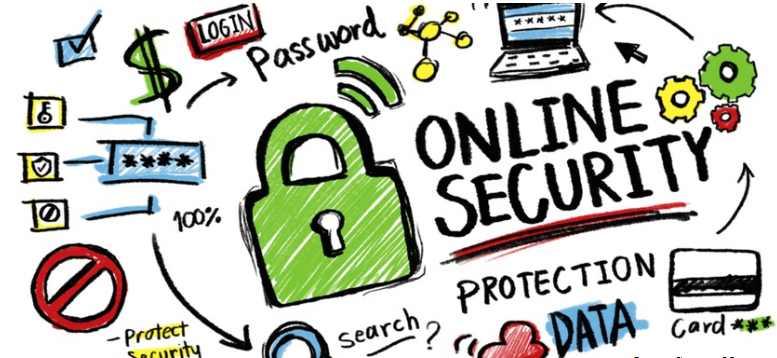There is no doubt that the creation of the internet is one of the greatest inventions of modern-day technology. At the risk of sounding old-school or even “old,” we won’t say that the internet is dangerous, but we will say that it can be a scary place for the lack of privacy, boundaries, and it’s widespread. Internet Safety
Take it from the UN Cyber and the EU-funded SafeBoarders projects that labeled the 8th of February as Safer Internet Day. A day where everyone is urged to join forces in making the virtual space a safer and better place for all users, especially children and teens.
A day to raise awareness on identity fraud, cyberbullying, and other online issues. So how can we make the wide web safer for all?
Here are a few tips to help you navigate the internet safely.
– Stranger Danger
One of the greatest perks of the web is that it helps us stay connected with others no matter the distance, helps us meet new people, and forms connections virtually. However, it is also one of its biggest downfalls. People are not always who they seem to be, and online it is harder to make sure of everyone’s intentions, let alone true identities.
Just stay wary when talking to people you have only met virtually, and when arranging a face-to-face meet-up, make sure to do it in a crowded place, and let someone know your whereabouts. Internet Safety
– Make online purchases from secure sites only
Online shopping is a blessing as it saves time, effort, and gives a wide selection of merchandise. To continue indulging, you need a working payment method, so just double-check the website, read customer reviews and check the URL before entering your card number.
And under no circumstances, ever put your pin or answer personal questions on payment sites. Even your bank is warning you against that.
– Keep your antivirus programs updated
For desktop users, having a strong firewall and antivirus programs could be the only thing saving you from viruses and malicious tracking bugs that can steal all your information and data. Choose the settings where the programs are updated automatically, so you have one thing less to worry about. Internet Safety
– Live by the Golden Rule
This tip is by Microsoft to help you manage negative online experiences. The tech-savvy gurus of Microsoft advise to “Act with empathy, compassion, and kindness in every interaction, and treat everyone (I) you connect with online with dignity and respect.” No need to add on to that.
– Report suspicious actions or profiles
Help the support teams of the web and social media platforms clean their spaces and better understand malicious patterns by reporting suspicious actions and profiles. Do not be afraid to stand up for yourself and report people who harm others online.
– Never share your passwords
There is a reason why passwords are mostly required to be close to the Morse code. It’s a way to protect your content and personal information from being hacked. Trust me, getting hacked is no fun, and it is not always retrievable.
 Take your passwords with you to the grave. Or not to exaggerate, only share them when necessary and do it privately. Internet Safety
Take your passwords with you to the grave. Or not to exaggerate, only share them when necessary and do it privately. Internet Safety
– Learn to spot fake emails, links, and websites
You might receive fake emails in the name of trusted entities like your bank or Spotify as a way for criminals and con artists to let you reveal account information. The technical term for this is phishing. You can spot these by:
– Don’t use the same passwords for different accounts
Don’t make it easy for frauds to hack you and steal your identity. We know it is hard to remember all these passwords, but better be safe than sorry.
– Keep private
Of course, we mean this in a very broad way because the internet makes privacy tricky. But there are ways to ensure your safety like:
- Making your profiles private
- Keeping intimate details offline
- Not revealing everything about yourself
- Browsing in private mode
- Only connecting to secure and trusted Wi-Fi
- Updating your privacy settings on social media platforms
– Stop bullying
Be kinder to people. Create a space of tolerance, dialogue, and freedom for yourself and others. There is serious mental and psychological harm that is produced due to extreme online bullying.
Just to be clear, bullying is not simply stating a different point of view, but harassment, the use of ugly words and slurs, sending threatening content, spreading rumors, and posting fabricated pictures and videos with ill intentions.
Even good intentions can lead to harmful actions in the name of “being funny.” So think before you post anything.
For everyone who has kids, teach them these tips and apply some sort of parental guidance and rules to ensure their safety before letting them navigate in this endless and boundless world that is the internet.
5 Locations for Luxury Staycations in Egypt





